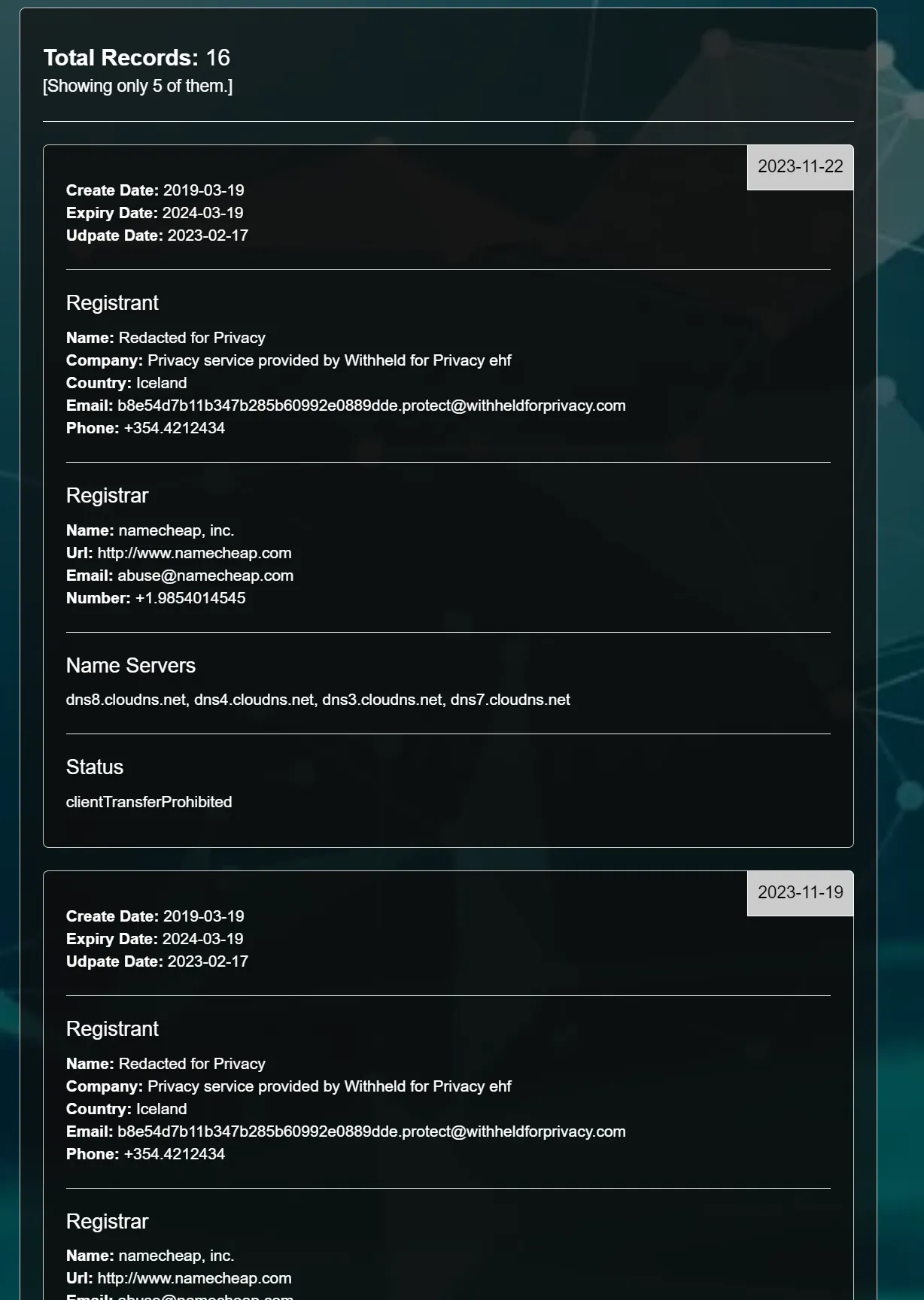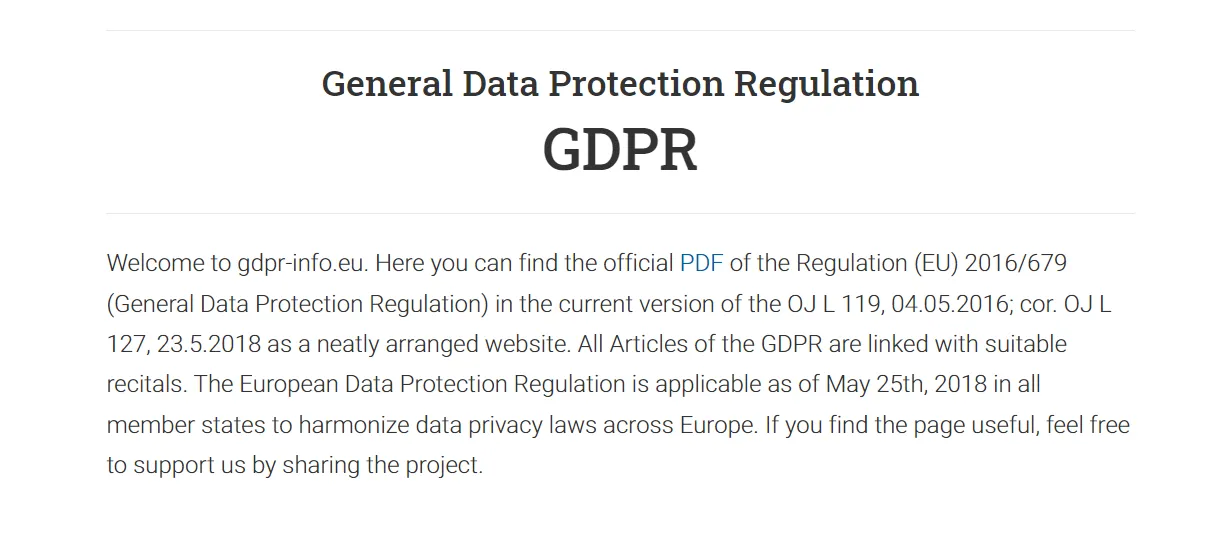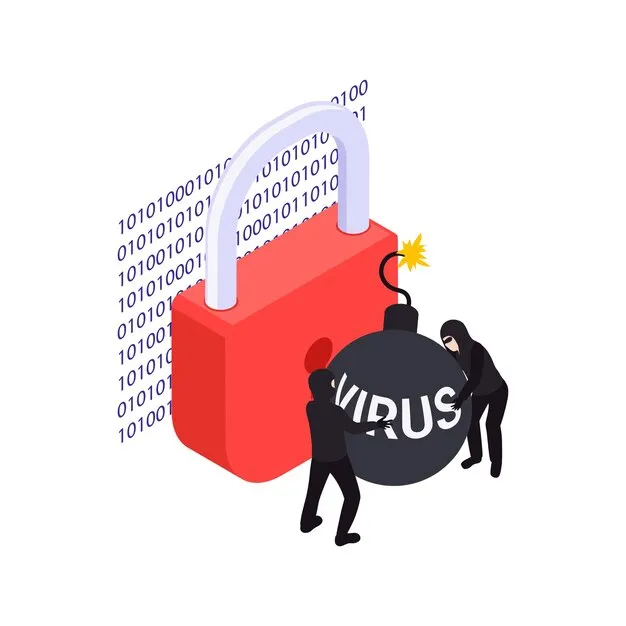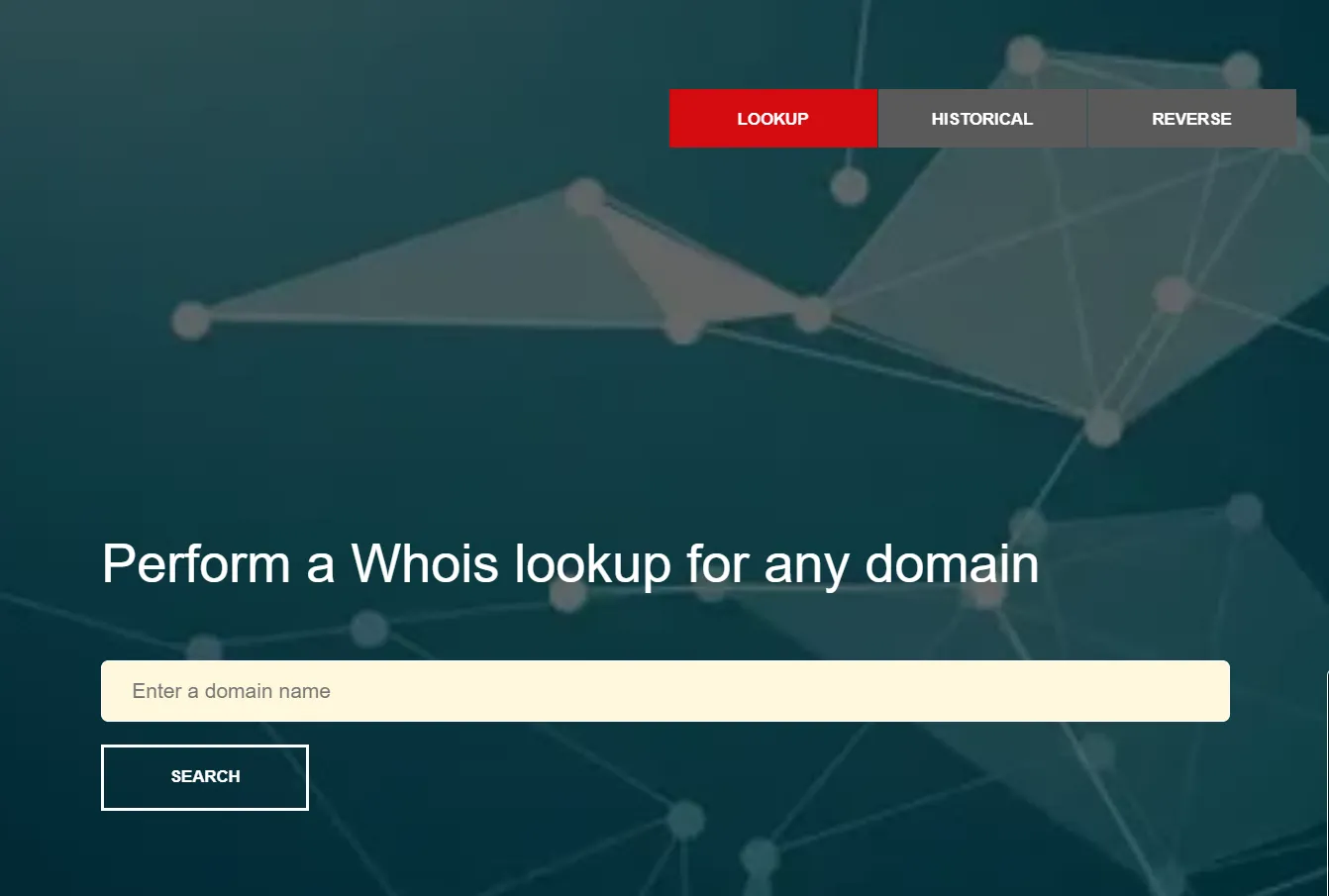
Historical Whois Lookup: What It Is, Why You Need It, And How It Can Boost Security, Efficiency, And Trust
Already overwhelmed security teams get little respite from an ever-increasing threat landscape. With the number of cyber-attacks on the rise, criminal gangs and hackers know how stretched you and your cyber defenses are. It's common knowledge that time has always been on the attacker’s side and both you and they know it. Today, more than ever, organizations like yours are expected to do more—way more—with less.
That this places you, your security teams, and organization in both an unenviable and seemingly unending situation is, we’re sad to say, largely irrelevant. Please don’t misunderstand—because we’re 100% behind you with this—but the reality is the situation’s a stinker, and we can, and must, do what we can with what we’ve got. However, one of the best tools that your security teams might not have, and could seriously benefit from, is the Historical Whois Lookup tool.
In the same manner as its famous Whois Lookup cousin lets you investigate current domain-related information, Historical Whois Lookup focuses solely on ownership history of the past.
“Elementary, my dear Watson!”
Indeed, if you're familiar with Sherlock Holmes and his sidekick, Doctor Watson (and their uncanny ability to unravel clues from the past), this is Historical Whois Lookup.

Though Whois Lookup would be akin to investigating the real-time cyber-crime scene, Historical Whois Lookup would be scouring the surrounding territory and casting a wider net uncover the clues—the historical Whois records—that brought us to this point.
In this post, we’ll look at what Historical Whois Lookup is, why organizations need it, the threats and challenges that organizations face, and the benefits of using it (especially automated via API).
Introduction to Historical WHOIS Lookup
A Historical Whois Lookup tool is a specialized software or service that allows you to retrieve and analyze a domain name’s historical registration data records—the domain history. These domain history records include details such as the website ULR, domain owner’s name(s), contact information, registration and expiration dates, IP addresses, and any changes in ownership over time.

This historical data can help you track the full history of any domain name and then research and use that information for various purposes, such as investigating incidents, analyzing trends, and making better and more informed strategic decisions.
When and How is Historical Whois Lookup Used?
Though there are many areas where Historical Whois Lookup can be used, 3 of the more common/frequent combi-threats to organizations today are:
- Cyber-security and Threat Intelligence
- Brand Protection and Intellectual Property (IP) Management
- Regulatory Compliance and Legal Investigation
Cyber-security and Threat Intelligence:
Examining a domain’s Whois history, historical ownership, and registration details can help you identify patterns, anomalies, and a wide range of suspicious activities. Though these database searches can be (and likely are) performed manually, this is more of a reactive (and slow) approach. Given the speed of advancement today, manual processes and procedures are something we wouldn't recommend, not least because of the speed, but also because they're prone to human and other errors.
However, if you connect via Application Programming Interface (API), then you're switching up a gear to an automated/proactive approach that allows you to detect and react to potential cyber threats as they emerge and before they can escalate and worsen. Such threats include phishing campaigns, domain hijacking, and a wide range of other malicious activities (more on the benefits of connecting via API below).
The second most common threat to organizations is brand protection and IP management.

Brand Protection and Intellectual Property (IP) Management:
Tracking the historical changes in domain ownership lets you monitor for unauthorized use of your brand names, trademarks, or other intellectual assets. Again, when such lookups and investigations are performed manually, it’s slow and mostly reactive for your security professionals (and, let’s face it, they're already overburdened, so you really should be taking every advantage possible).
However, when automated, you instantly switch to a proactive posture that can help prevent such risks as domain squatting, brand dilution, and several other forms of online abuse. In the event of an incident, having historical Whois data at your fingertips allows your legal and compliance teams to quickly build cases against infringing entities and malicious actors, and to quickly and efficiently nip such infringements in the bud before they can escalate.
The third most common threat is regulatory compliance and legal investigations.

Regulatory Compliance and Legal Investigations:
Though GDPR and other regulations have led to the redaction of relevant Whois data, Historical Whois Lookup does allow you to navigate these privacy constraints while still fulfilling your regulatory compliance requirements. In legal investigations, historical domain data is crucial for several reasons, including building a comprehensive timeline, conducting forensics analyses, and building a case for resolving any disputes.

Together, these 3 areas underscore the strategic role that Historical Whois Lookup plays in strengthening your organizations security posture and minimizing your overall risk.
Next, we’ll look at more specific threats and challenges and how Historical Whois Lookup can help.
Threats and challenges and how Historical WHOIS Lookup can help
Inaccurate or out-of-date information is of little use, but especially with Whois lookups (whether Whois , Reverse Whois , or Historical Whois). When you’re trying to conduct forensic analyses, there is no place for inaccurate data.
Equally, when you’re either under attack or need to mount an effective response to an ongoing security threat, then you not only need accurate data, but you also need it now, and in a usable format (JSON or xml format are typical). If not, then this can impact your organization in several ways and with potentially disastrous consequences. Additional threats and challenges include:
- Privacy concerns and data redaction: Historical Whois Lookups make navigating privacy regulations simple as you get access to redacted Whois data that never compromises your users' privacy and ensures your remain compliant with relevant data protection laws.
- Security vulnerabilities: Obtaining a historical perspective on specific domain names/domain ownership changes enables you to detect, rapidly respond to, and implement proactive cybersecurity measures to thwart any potential security threats.

- Ethical data use: You can avoid potential reputational damage via the ethical use of domain data. In doing so, every WHOIS record helps to not only prevent misuse, but also demonstrates to interested parties, stakeholders, and customers your clear commitment to responsible data practices .
- Transparency and trust building: Because historical lookups provide you with a clear historical trail of a domain's past, including all domain ownership changes, this fosters open communication, transparency, and helps to further build trust with company stakeholders.
- Data accuracy and reliability: This is key to avoiding errors or omissions that may hinder investigations or incident response efforts. Your chosen lookup tools must be reliable, useful, and help you achieve results else it's clearly unfit for purpose.
- Limited access to historical data: Overcoming restricted access to historical WHOIS data is essential in compiling the big picture that is often needed to successfully unravel security incidents.
- Volume and scalability challenges: When you employ an efficient, automated, and accurate lookup tool, managing large volumes of historical WHOIS data effectively becomes far more manageable (this is especially relevant for organizations with extensive domain portfolios). If you've personally experienced using a large number of manual lookups across multiple domains and then tried to consolidate the data then you'll know exactly where we're coming from!

Of course, the severity of these problems for your organization is amplified by both rapid technological advancements and the need for better, faster, accurate, and data-driven decision-making.
Your organization’s core operations function and rely on such accurate, speedy, (and often) interconnected data. When this function breaks down, this not only leads to errors, delays, and frustrations, but it can also multiply and cascade into other business areas. When this occurs, issues often compound making it harder, more resource-intensive, and costly to rectify and address. You need reliable, accurate, and timely data, and a multitude of benefits accompany that.
The benefits of Historical Whois Lookup
A Historical Whois Lookup tool can offer significant benefits to your organization. Though we can look at these benefits from several angles, for the purposes of this post, we’ll look at it purely from a software security perspective. (We aim to cover other areas in future posts.)
With software security, Whois information is valuable for tracking the ownership and history of domain names. This is crucial for several reasons, not least because it helps your security teams identify potential security threats, investigate incidents, and both protect and bolster your organization's online presence.
- Incident Investigation: Accessing Historical Whois data can help you when a security incident such as a cyberattack or domain hijacking occurs. Being able to trace information back to the previous owners or any changes in domain registration can aid in identifying potential attackers and obtaining a better understanding the scope of the incident.
- Forensic Analysis: Knowing the historical ownership and registration details of a domain can be vital. Forensic analysis of security incidents can help in uncovering patterns and connections that might otherwise not be apparent from current ownership records.
- Security Risk Assessment: Assessing the security risk associated with specific domains or registrants helps identify domains with a history of malicious activity or those associated with high-risk registrants.
- Predictive Analysis: Being able to proactively address vulnerabilities or take preventive measures based on patterns and historical behavior is a key feature in predicting potential security threats or cyber‑attacks.
- Mergers and Acquisitions: If your organization is exploring either of these, a WHOIS history search, which can go back more than a decade, can provide key insights into the domains and online assets of companies being acquired. All of which helps with due diligence, risk assessment, and making the right decisions.
- Comprehensive Incident Response: Getting fast, accurate, and up-to-date historical WHOIS data can significantly improve your incident response and directly contribute to successfully containing and mitigating the impact of any security incident.
- Research and Development: Being able to access historical Whois data is key for security researchers, cyber-professionals, and other users investigating security incidents, studying cyber threat trends, identifying emerging attack vectors, and developing better security measures.
While Historical Whois Lookup tools do offer numerous benefits, underpinning these are data privacy regulations, such as GDPR, which have restricted access to some historical WHOIS data. As such, when using historical WHOIS lookups, your organization must ensure that your use of data complies with relevant privacy laws and regulations.
Lookups can be time-consuming
If you’ve been involved with software security for any length of time, you’ll know how time-consuming incident investigations, analyses, R&D, etc., are. Yes, you can use all Whois Lookup tools manually, but that’s only going to add to your security and other team's already full burden. Furthermore, manual lookups are also fraught with error (human and other), slow, inefficient, limited in scale, etc.
A better way is to automate Historical Whois Lookups programmatically. This can be done via API (Application Programming Interface).
The benefits and advantages of the Historical WHOIS Lookup API
Connecting to a Historical Whois Lookup tool via API offers several benefits and advantages, including seamless process integration and automation. This makes a Whois history search an incredibly valuable resource for both your security professionals and your organization in managing and advancing both your online presence and security. Such benefits and advantages include:
- Alerting and Notifications: Through Whois history API access, you can set up automated alerting and notifications based on your own specific criteria. One example is receiving alerts when any changes to domain ownership occur helps you identify potential threats or compliance violations.
- Automation: Automating data retrieval, analysis, and processing ensures that your security teams always have access to the latest information and can significantly reduce manual efforts, the risk of error, and improve overall efficiency.
- Compliance: Automation ensures timely access to the necessary data, simplifies compliance efforts, and minimizes any risk of falling foul of relevant regulations or legislation.
- Custom Reporting: Being able to construct your own reporting and analysis tools not only offers incredible flexibility but also provides you with better and more insights specific to your organization's security and compliance needs.
- Customization: APIs provide you with the flexibility to tailor the integration to your specific organizational needs. This means you can tweak your connection to only extract and analyze the data that is most relevant to your current security objectives and can save you a lot of time, resources, and energy.
- Efficient Research: Your security professionals and researchers can also use this API connection to access to efficiently retrieve historical Whois data for in-depth investigations, threat analysis, trend monitoring, etc.. All of these help you become better informed to supports more effective security operations.
- Integration with Security Tools: APIs can be seamlessly integrated with other security tools and systems, such as SIEM (Security Information and Event Management) platforms, threat intelligence platforms, and incident response tools. When combined with customization, custom reporting, etc., this increases the power and versatility of the tool and provides you with a more holistic approach to security.
- Operational Efficiency: API connections are fast and integrating the Historical Whois Lookup tool via API aids you in streamlining security operations, improving resource allocation, and enhancing overall operational efficiency.
- Real-Time Data: With API access, you can now obtain real-time historical Whois data, allowing for immediate responses to any security incidents or changes in domain ownership. (This is especially critical for incident response and threat detection.) This transforms you from a manual/reactive into an automated/proactive organization.

- Reduced Latency: API access provides lower latency compared to manual data retrieval meaning that you can access and process your data faster and more efficiently, make better and more accurate decisions, and rapidly respond to incidents.
- Reputation and Trust: API integration allows for immediate updates and enhancements to security processes based on the latest historical Whois data. This provides a whole new level of agility in responding to changing security threats and can help you stay ahead of cyber criminals.
- Scalability: Finally, API integrations are scalable, which allows you to efficiently handle a large volume of historical WHOIS data. So, whether you need to query one or a hundred domains, for your Historical WHOIS Lookup tool, it remains a walk in the park.
Conclusion
Organizations are struggling in the face of rising cyber-security threats. Time is, as always crucial, but security teams are overwhelmed, rarely have the right tools, and need timely access to accurate information to function effectively. The Historical Whois Lookup tool delivers exactly that, Not only is it simple and quick to use, but it also provides the essential data precisely when and where it's needed. Furthermore, when integrated with APIs, it enhances your organization in several areas, including security, efficiency, and trust. We recommend that you try it today and see what a difference it can make for you.
